
sites web
 |
vaincre la violence sites web |
 |
African Centres for Peace & Education Training (ACPET) is the latest addition to the Canadian Centres for Teaching Peace (see below) listing. |
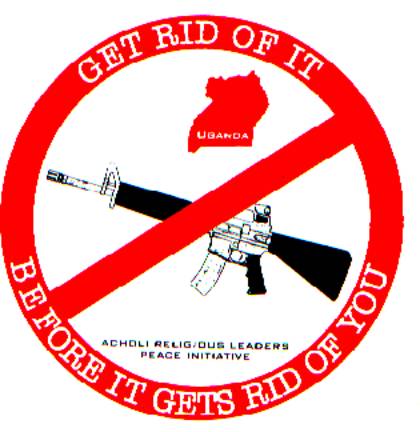 |
The Acholi Religious Leaders Peace Initiative is an interfaith forum that brings together Muslim and Christian leadaers in Acholiland, Northern Uganda. ARLPI provides a pro-active response to conflicts through community-basesd mediation services, advocacy and lobbying and peace-building activities. |
 |
The Action Committee, Service for Peace, AGDF, is an association of 34 peace organisations. As a registered non-profit organisation the AGDF represent their members' concerns such as reconciliation and international co-operation, support and encouragement for initiatives working for justice, for social security and for environmental concerns. |
 |
Alternatives to Violence Project International trains people in nonviolent ways of solving conflict and in forming viable communities. From its beginnings in New York State in 1975, the Alternatives to Violence Project has become an international organization reaching thousands of people worldwide. The purpose of the international network is to encourage the development of the programme in different countries. There are now hundreds of volunteer facilitators working on AVP programmes throughout the world. |
 |
The aims of the Asian Conference on Religion & Peace are, firstly, to re-vitalize Asian religious heritage and to promote a creative and critical awareness of religious people in Asia in pursuit of peace, justice and human dignity; and secondly, to motivate the people of Asia and the Pacific region to make concerted efforts to promote peace. |
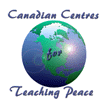 |
The purpose of Canadian Centres for Teaching Peace is to bring together all peoples of the world in the promotion of lasting peace through "thinking globally and acting locally", building peace in the community, strategic action planning, networking, information sharing, etc. PEACE.CA should enhance cooperation between nations, cultivate goodwill and peaceful understanding among people, and promote human and economic development. |
 |
CISV is a youth exchange organization which offers young people opportunities to meet their peers from other countries and to form intercultural friendships. Locally, programmes give people the chance to learn about the cultures in their own communities and to explore important themes related to peace and understanding. Local branches of CISV exist in many countries around the world. |
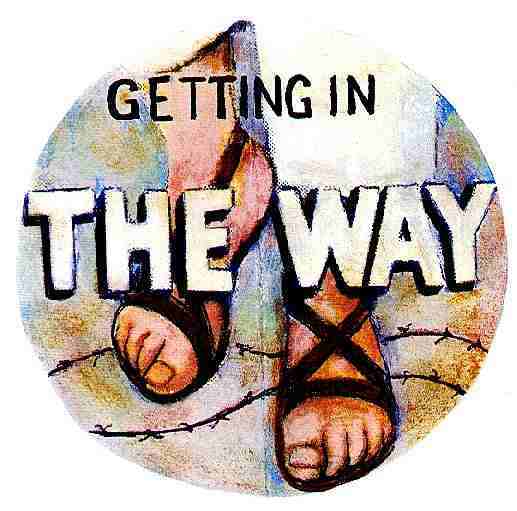 |
Christian Peacemaker Teams (CPT) is an organization committed to reducing violence by challenging systems of domination and exploitation as Jesus Christ did in the first century. A project of the Mennonite Churches, Church of the Brethren and Friends United Meeting and other Christians, CPT has worked in Haiti, the Middle East, Bosnia, Chechnya, Colombia, Canada, and the USA. In all locations, CPT responds to invitations from grassroots movements seeking to rectify injustice in nonviolent ways. |
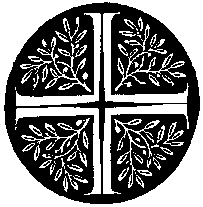 |
CHURCH & PEACE Christian Service Unit brings together groups, communities, organisations and churches committed to becoming the peace church of Jesus Christ in daily life and action. It began in 1949, when Quakers, Mennonites and the Church of the Brethren (the historic peace churches) joined with the International Fellowship of Reconciliation to coordinate their activities.
|
 |
The Dialogue webpage for conflicts worldwide site, developed by the Japan Center for Preventive Diplomacy, aims to contribute to the improvement of mutual understanding between opposing sides of conflicts throughout the world by providing a forum for dialogue. |
 |
The
Evangelical Lutheran Mission in Lower Saxony: The City of Braunschweig (pop. 256 000) has a well-functioning Grassroots-Network of organisations, groups and and activists involved in a broad spectrum of violence prevention, intervention and conflict management. It is linked to the Braunschweig City Council on Violence Prevention which offers administrative advice, but also seeks sponsors to support projects at grass-roots level. Mainly experts in local community development, representatives of NGOs and churches, the police, and city officials of welfare and youth have have formed a working group on violence prevention in Braunschweig to coordinate different programmes and to make them accessible to the public. |
 |
The Hague Appeal for Peace is a major coalition of civil society organizations with a network of over 1000 organizations and individuals. It includes cultural activists, those concerned with peace and disarmament, human rights, indigenous peoples' rights, gender, the environment, faith-based approaches, peace education and youth. In May of 1999, The Hague Appeal for Peace organized the largest civil society peace conference in history. Over 10,000 activists from around the world attended. |
 |
The Institute for Peace and Justice (IPJ) is an independent, interfaith, nonprofit organization, begun in 1970. It offers resources for schools, families, churches and other communities of faith, workshops and other learning experiences for educators, religious leaders, parents/families, and individuals, and advocacy that promotes a more just and peaceful society. |
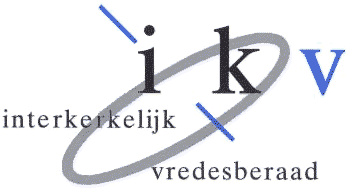 |
The Interchurch Peace Council was established in 1966, by nine churches in the Netherlands, with the order to analyse issues of war and peace, to inform people in the churches and society and to recommend appropriate actions. The campaign "Let's get rid of nuclear arms, let us begin in The Netherlands" which started in 1977, and the demonstrations of some hundreds of thousands of people against the deployment of new nuclear weapons in 1980's have made the Interchurch Peace Council (IKV) well-known among the general public. |
 |
The International Fellowship of Reconciliation (IFOR) is an international, spiritually-based movement composed of people who, from the basis of a belief in the power of love and truth to create justice and restore community, commit themselves to active nonviolence as a way of life and as a means of transformation-personal, social, economic and political. |
 |
The IPB is the world's oldest and most comprehensive international peace federation, bringing together people working for peace in many different sectors: not only pacifists but also women's, youth, labour, religious, political and professional bodies. Founded in 1892 IPB has 213 member organizations, both internationals and national/local groups in over 50 countries. IPB's role is to support peace and disarmament initiatives taken by the UN, by governments, and especially by citizens. |
 |
The primary goals of the International University of Peoples' Institutions for Peace (IUPIP) are: to promote a global culture of peace in the spirit of UNESCO; to contribute to the development of a wolrd order based on the implementation of fundamental human rights; to spread the idea of non-violence; and to train and to enhance the abilities and skills for people's diplomacy and the peaceful resolution of conflicts |
 |
The Life & Peace Institute, LPI, is an international and ecumenical centre for peace research and action. Founded in 1985 by the Swedish Ecumenical Council, LPI aims to further the causes of justice, peace and reconciliation through a combination of research, seminars and publications. |
 |
Lutheran Peace Fellowship (LPF) is a community of Lutherans across the US and around the globe, responding to the gospel call to be peacemakers and justice seekers. Founded in 1941, LPF offers a wide range of expertise, encouragement, and resources:
|
 |
Mennonite Central Committee (MCC) is a relief, service, and peace agency of the North American Mennonite and Brethren in Christ churches. MCC reflects the biblical call to care for the hungry and thirsty, that stranger, the sick and those in prison. |
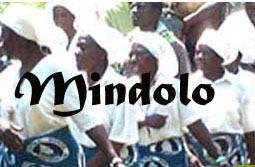 |
The Mindolo Ecumenical Foundation was established in 1958 with the mandate to serve Africa by training and equipping individuals for positions of leadership. The fouondation currently runs a pan-African diploma course on peace-building and conflict transforatmion. It also offers campus-based certificate progorammes in peace-building and conflict transformation, and in community development. Mobile schools extend leadership development and skills training into rural and peri-urban areas. |
 |
On Earth Peace Assembly is a non-profit organization grounded in the Church of the Brethren. It promotes peacemaking through educational programes and reconciliation services. |
 |
Pax Christi International is a non-profit, non-governmental Catholic peace movement that began in France at the end of World War II. Today, it is comprised of autonomous national sections, local groups, and affiliated organisations spread over 30 countries and 5 continents, with over 60,000 members worldwide. The movement works in all areas of peace but has a specific focus on demilitarisation, security and arms trade, development and human rights, and ecology. |
 |
Peace Brigades International (PBI) is a grassroots organization that explores and promotes nonviolent peacekeeping and support for human rights. When invited, it sends teams of volunteers into areas of political repression and conflict. The volunteers accompany human rights defenders, their organizations, and others threatened by political violence. |
 |
An international quarterly, Peace News makes links and draws connections between movements around the world which are all struggling for radical social change through nonviolent means. It is an activist/campaigning magazine - written by, about, and for activists and campaigners. |
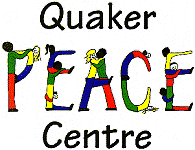 |
The Quaker Peace Centre, South Africa, is a team of peacemakers and development practitioners from different backgrounds. It works with people towards building a better society which fosters the creative and non-violent resolution of conflict, participatory development and the respect of self and others. It does this through awareness-raising, capacity-building and the development of sustainable peace models. |
 |
Steps Against Violence" - Empowering people to stand up against violence in South Africa and in Germany. An ecumenical learning project for schools, community organisations and churches. Aims:
|
  |
The TFF's mission is peace: learning to handle conflicts with ever less violence against other human beings, other cultures and Nature. Based in Sweden, TFF is a networking organization and a peace training network with associates all over the globe. They believe that alternatives to the main trends of our time are desirable. TFF is critical and constructive. |
  |
in Rochester, NY, USA. Their Outreach Service includes Action for Peace and Justice. |

|
The purpose of United Religions Initiative is to promote enduring, daily interfaith cooperation, to end religiously motivated violence and to create cultures of peace, justice and healing for the earth and all living beings. |
|
|
The World Conference on Religions and Peace is the largest international coalition of representatives from the world's great religions who are dedicated to achieving peace. Respecting cultural differences while celebrating our common humanity, WCRP is active on every continent and in some of the most troubled places on earth, creating multi-religious partnerships that mobilize the moral and social resources of religious people to address their shared problems. |
 |
Since its founding in 1970, the World Conference on Religion and Peace has been dedicated to promoting cooperation among the world's religions for peace, while maintaining respect for religious differences. WCRP is a global movement, with more than 30 national chapters and members in more than 100 countries. Accredited to the United Nations, WCRP engages in vigorous peace promoting initiatives throughout the world in cooperation with other religious, development and UN agencies. |
 |
YouCAN! is a national organization run entirely for youth by youth. Focusing on peace-making and consensus-building, its mission is to develop and promote nationwide youth-led initiatives in non-violent conflict resolution and violence prevention. Its goal is to facilitate the training and development of such initiatives across Canada to prepare today's youth for the challenges of tomorrow. |
 |
AGDF: Aktionsgemeinschaft Dienst für den Frieden |
 |
Die hannoversche Landessynode hat sich auf ihrer Herbsttagung 2000 dem Aufruf der EKD zur Ökumenischen Dekade zur Überwindung von Gewalt (DOV) gemäss dem Rahmenkonzept des ÖRK angeschlossen. Das Amt für Gemeindedienst (AfG) wurde gebeten, die begonnene Vernetzung der Aktivitäten zur Dekade fortzuführen. Die Zielsetzung der Dekade soll von den landeskirchlichen Einrichtungen und Werken aufgegriffen und praktisch umgesetzt werden. Das AfG übernimmt diesbezüglich die Koordination der landeskirchlichen Werke und Einrichtungen. |
 |
Denn Gewalt löst keine Konflikte, sondern erschwert gerade deren Lösung. Das ist im Kleinen nicht anders wie im Großen. Und weil Konflikte zum Leben dazu gehören, beschäftigen wir uns als Arbeitsstelle innerhalb der Evangelischen Landeskirche Baden mit Fragen der Konfliktlösung und der Überwindung von Krieg und Gewalt. Wir beraten Kriegsdienstverweigerer auf dem Weg zur Anerkennung, vermitteln Freiwillige in verschiedene Sozialprojekte im europäischen Ausland, unterstützen den Aufbau eines Zivilen Friedensdienstes als Friedensfachdienst und bieten Kirchengemeinden innerhalb unserer Landeskirche in diesem Bereich unsere Unterstützung an. |
 |
In der Ökumenischen Dekade zur Überwindung von Gewalt geht es nicht nur um Aktivitäten nach außen, sondern auch um seelsorgerliche Aufarbeitung erlittener Gewalt. Die Evangelische Akademie Bad Boll bietet dazu ständig Kurse für die berufliche und persönliche Lebensorientierung. Im Einladungsprospekt heißt es: "In unserem Alltag haben wir meist weder die Zeit noch die Orte, unsere Gefühle zuzulassen und so die Chance zu bekommen, Belastendes, Traumatisches, Verdrängtes (meist als Folge erlittener Gewalt) zu bearbeiten, damit wir danach weniger "Altlasten" durchs Leben schleppen. Die Innehalten- und Unterwegs sein-Kurse sollen solche Orte sein". |
  |
Das Evangelische Missionswerk in Südwestdeutschland (EMS) beschäftigt sich in seinen verschiedenen Arbeitsbereichen mit dem Thema "Gewalt überwinden". So wird die nächste Gemeindediensttagung (2001 in Bad Urach) unter dieser Überschrift stehen. Eine internationale EMS-Konsultation zum Thema Versöhnung, die die Dekade-Inhalte aufnimmt, ist für November 2001 geplant. Ein Themenheft des "darum" (Heft 3/2000 "Schritte aus der Gewalt") hat sich bereits jetzt mit dem Aspekt der Gewalt gegen Frauen befasst. |
 |
Gemeinderdienstes des Evanglisch-Lutherischen Missionswerks in Niedersachsen (ELM). Braunschweig, der ersten deutschen Stadt im neuen Netzwerk zur Überwindung von Gewalt! Wir freuen uns, auch auf internationaler Basis dabei zu sein, wenn es um gewaltpräventative und gewaltüberwindende Arbeit an der Basis geht. Denn da haben wir uns tatsächlich nicht zu verstecken: bereits seit mehreren Jahren existiert in unserer Stadt ein Grassroots-Netz unterschiedlicher Projekte zur Friedensarbeit und Gewalt- bzw. Konfliktbewältigung, das sich sehen lassen kann. Es sind weitgehend Praktiker in Kommune, Nicht-Regierungsorganisationen und Kirchen, die ihre Angebote im Arbeitskreis Gewaltprävention Braunschweig miteinander vernetzt haben und sie einer breiten Öffentlichkeit - besonders aber Jugendlichen - anbieten. |
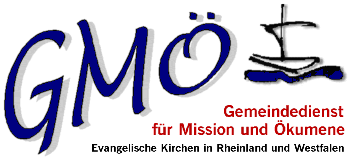 |
Der Gemeindedienst für Mission und Ökumene (GMÖ) ist eine Einrichtung der evangelischen Kirchen von Rheinland und Westfalen und ist hervorgegangen aus dem Gemeindedienst für Weltmission (GfW) der Vereinten Evangelischen Mission. In den jeweiligen Kirchenkreisen ist es Aufgabe der PfarrerInnen und MitarbeiterInnen, das Anliegen der christlichen Mission in einem ökumenischen Horizont wachzuhalten und zu fördern. |
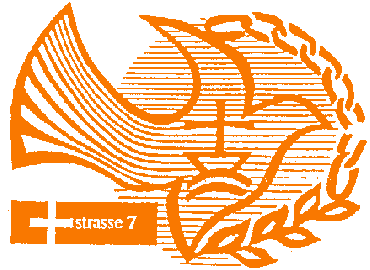 |
Ökumenisches InformationsZentrum, Dresden:
|
 |
"Wir lehnen eindeutig die Passivität ab und ebenso entschieden die Gewalt als Mittel des Kampfes. Wir ersetzen sie durch die Macht der Wahrheit, der Gerechtigkeit und der Liebe." Hildegard Goss-Mayr Damit Gewaltfreiheit auch wirksam werden kann, muß sie gelernt und eingeübt werden. Dazu bietet der Oekumenische Dienst Schalomdiakonat Kurse an. |
 |
Schritte gegen Tritte: Vom Umgang mit Gewalt - in Südafrika und bei uns: Ein ökumenisches Lernprojekt für Schulen und Gemeinden. Ziele: |
 |
Afin de promouvoir la décennie votée par l'assemblée générale de l'ONU le 10 novembre 1998, la Coordination française pour la Décennie international de la promotion d'une culture de la non-violence et de la paix, au profit des enfants du monde veut assurer la mise en place d'instruments de collaboration et de coopération entre les différentes ONG et associations qui prendront part à la Décennie en France. Elle assure aussi les contacts de la Décennie avec les pouvoirs publics, les médias et les différentes instances représentatives de la société civile. Entre ces instruments, des commissions pour
|
 |
Missão Urbana e Rural (MUR): é uma grande família estendida. Nos identificamos sobre tudo com a palavra quéchua ( povo indígena na América Latina) "ayllu", e a palavra árabe "aillá". Ambas palavras descrevem a comunidade e a família como um conjunto de pessoas unidas pela história, o sofrimento, a luta e a fé em Deus. Nossa comum orientação está enraizada nas "Prioridades Programáticas de MUR".A reflexão bíblica, teológica e de fé é a dimensão central de nossa vida juntos. |
|
|
Norwegian DOV web site
TIÅR MOT VOLD: BYGG FREDEN! Norske kirkers svar på KIRKENES VERDENSRÅDs DECADE TO OVERCOME VIOLENCE 2001-2010 |
Tél. (+41.22) 791.60.42, 791.61.11, fax (+41.22) 791.64.09
Adresse électronique : DOV